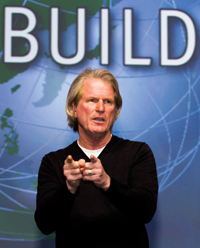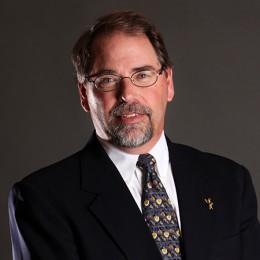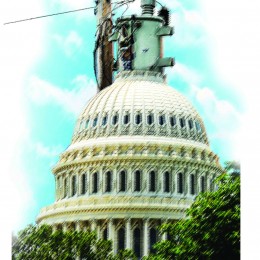 Southwest Airlines could have added $350 million to its bottom line, said Roy Spence, an Austin, Texas-based advertising whiz who came up with his client’s well-known “bags fly free” slogan.
Southwest Airlines could have added $350 million to its bottom line, said Roy Spence, an Austin, Texas-based advertising whiz who came up with his client’s well-known “bags fly free” slogan.
But that would have violated Southwest’s fundamental purpose — to make airfares more accessible to travelers. By staying true to its purpose, Southwest actually brought in $1 billion in new revenue from appreciative customers.
“You know why?” he asked those attending the 2012 National Rural Electric Cooperative Association’s annual meeting, March 5 in San Diego. “We did the right thing for our customers.”
Likewise, he told electric co-op leaders they must always act in accord with their basic purpose of improving the quality of their members’ lives.
Spence has been working with the 21st Century Electric Cooperatives Committee. The panel of high-level co-op leaders was convened early this year to examine the meaning and future role of electric co-ops, especially in relationship to their members.
Speaking on “It’s What Co-ops Stand For,” Spence said when co-ops first brought electricity to rural areas 75 years ago, they created a fabric that bonded co-ops and their consumers together. Any successful business, he said, must act in accord with its fundamental purpose.
That’s especially true because consumers have retrenched during tough economic times, and are looking for more businesses that offer more than just a calculating return to shareholders, he said.
“If you’re not in the business to improve your customers’ lives or your members’ lives, you will not be in business,” he told co-op leaders.
“It is important to shine a light on the rich heritage of electric co-ops,” said Mike Williams, president/CEO of the Texas Electric Cooperatives and chair of the special committee, who tapped Spence for his input.
“Over 75 years ago, we brought light to vast areas of the country that other utilities did not want to serve,” Williams said. “The reality is we brought more than light — we brought a quality of life to small towns and rural areas. As important as that was then, maintaining that quality of life may be even more critical today. And electric cooperatives are uniquely positioned to fill that role.”
During his address to the full membership in San Diego, Spence quoted an oft-cited Tennessee farmer from the early 1940s: “The greatest thing on Earth is to have the love of God in your heart, and the next greatest thing is to have electricity in your house.”
Co-ops, Spence said, “democratized the American dream.” But to turn past tense into a present-tense purpose — including sparking rural economic growth — Spence said co-ops must grab hold of what he terms a “holistic flywheel”: a new movement called conscious capitalism that equally regards business performance and the quality of people’s lives.
Co-ops, through their heritage, know how to do that, he said: “You turned the lights on in the past — you need to shine a light on the future.”
Sources: NRECA and Camille Wheeler, associate editor of Texas Co-op Power. To read a full biography of Spence, visit: http://www.texascooppower.com/texas-stories/people/dont-do-mild



